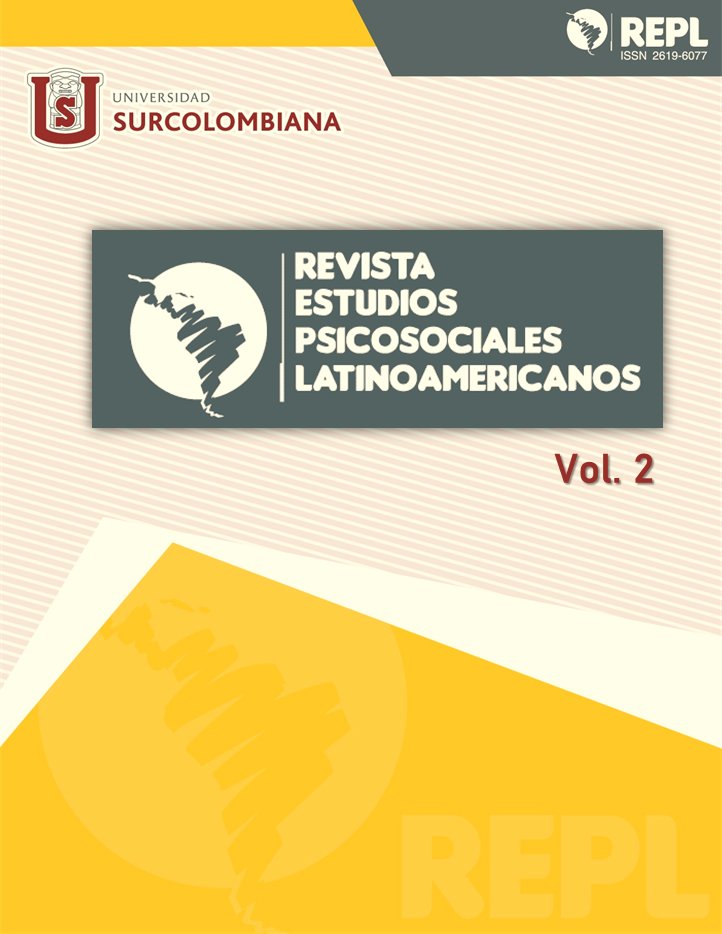Social representations on subjectivity, immersed in the pedagogical practices of students with diverse abilities
##plugins.themes.bootstrap3.article.main##
In Neiva there are currently educational centers that carry out inclusion programs with children and adolescents in a condition of disability, but, in addition to the existing regulations, it is necessary to know what are the social representations of the subject who are immersed in the pedagogical practices of teachers within from the classroom? In addition, it is pertinent to interrogate by subjectivity, when people with diverse abilities are reduced to a biological condition and cease to enhance other dimensions of their development. The research question that is proposed as an objective to answer is: What are the social representations of the teachers of an Educational Institution in the city of Neiva about subjectivity in their students with diverse abilities? The analysis of the data was carried out through the categories of beliefs and practices, the search of these categories was carried out in the grouping of common patterns expressed in the teachers' stories. The results reveal three central hypotheses: need for control, to ignore their sexuality and without identity. It was concluded that the pedagogical intervention of teachers points to the need for control over the behavior of students with diverse abilities, which becomes an ignorance of their subjectivity in terms of denying their sexuality and not having an identity that represent before the world.
Downloads
##plugins.themes.bootstrap3.article.details##
Aciego de Mendoza Lugo, R., & Vizcaino Luque , L. (2015). Valoración de una experiencia de educación afectivo-sexual para personas con discapacidad intelectual. Siglo Cero, 46(4), 45-58. doi:http://dx.doi.org/10.14201/scero20154644558
Baptista, P., Fernandez, C., & Hernandez, R. (2010). Metodología de la Investigación. México D.F: The McGraw-Hill.
Belgich, H. (2004). Sujetos con capacidades diferentes, sexualidad y subjetivación. Armenia: Kinesis.
Chomsky, N. (2012). Noan Chomsky: El objetivo de la educación: La deseducación. Filosofia Costa Rica. Obtenido de https://www.rebelion.org/noticia.php?id=147147
Cornejo, M., Mendoza, F., & Rojas, R. (2008). La Investigación con Relatos de Vida: Pistas y Opciones del Diseño Metodológico. Psykhe, 17(1), 29-39. Recuperado el 18 de 11 de 2017, de http://www.scielo.cl/pdf/psykhe/v17n1/art04.pdf
Ferrarotti, F. (2007). Las historias de vida como método. Convergencia. Revista de Ciencias Sociales , 15-40.
Foucault, M. (1977). Historia de la Sexualidad: La voluntad de saber. Mexico: Siglo XXI editores.
Foucault, M. (2002). Vigilar y Castigar: Nacimiento de la prision. Buenos Aires: Siglo XXI Editores.
García Arrigoni, P., & Nastri, M. (2011). Sexualidad en adolescentes con discapacidades motoras. Arch Argent Pediatr, 109(5), 447-452. Obtenido de http://www.codajic.org/sites/www.codajic.org/files/Sexualidad%20en%20adolescentes%20con%20discapacidades%20motoras.pdf?fbclid=IwAR12aK5jo59bbJ5J2n44hjE7JPrlHMCOxo5_IsP0-J42cQaprdY2Yq7F4wA
Han, B. C. (2017). La expulsión de lo distinto. (A. Ciria, Ed.) Barcelona, España: Herder.
Kornblit, A. (2007). Metodologias cualitativas en Ciencias Sociales. Buenos Aires: Editorial Biblos.
López Sánchez, F. (2001). EDUCACION SEXUAL Y DISCAPACIDAD. III Congreso “La Atención a la Diversidad en el Sistema Educativo”. (pág. 27). Universidad de Salamanca. Obtenido de https://campus.usal.es/~inico/actividades/actasuruguay2001/9.pdf?fbclid=IwAR2tCxyxA651M6KRjcyhVlVcakMyjNIm5TEaJ4nXNjA_gSNKd7gZid8ObRk
Ministerio de Educación Nacional. (29 de Agosto de 2017). Decreto 1421 de 2017. República de Colombia. Obtenido de http://es.presidencia.gov.co/normativa/normativa/DECRETO%201421%20DEL%2029%20DE%20AGOSTO%20DE%202017.pdf
Ministerio de Salud y Protección Social. (Junio de 2018). Sala Situacional de las Personas con Discapacidad (PCD). Recuperado el Octubre de 2019, de https://www.minsalud.gov.co/sites/rid/Lists/BibliotecaDigital/RIDE/DE/PS/sala-situacional-discapacidad-junio-2018.pdf
Moscovici, S. (1979). El psicoanálisis, su imagen y su público. Buenos Aires: Editorial Huemul S.A. .
Strauss, A., & Corbin, J. (2016). Bases de la investigación cualitativa: técnicas y procedimientos para desarrollar la teoría fundamentada (Vols. Primera edición en español, segunda reimpresión). Editorial Universidad de Antioquia. Obtenido de https://books.google.com.co/books?id=0JPGDwAAQBAJ&printsec=frontcover&dq=strauss+y+corbin+2002&hl=es&sa=X&ved=0ahUKEwihw9GXqITnAhWLv1kKHfzDDaAQ6AEILDAA#v=onepage&q=strauss%20y%20corbin%202002&f=false
Varela, F., & Flores, F. (1994). «Educación y transformación. Preparemos a Chile para el Siglo XXI». (C. A. Cornejo, Ed.) Chile. Obtenido de http:// atinachile.bligoo.com/media/users/0/1255/ archivos2006/pdf/educacion_transformacion. pdf




